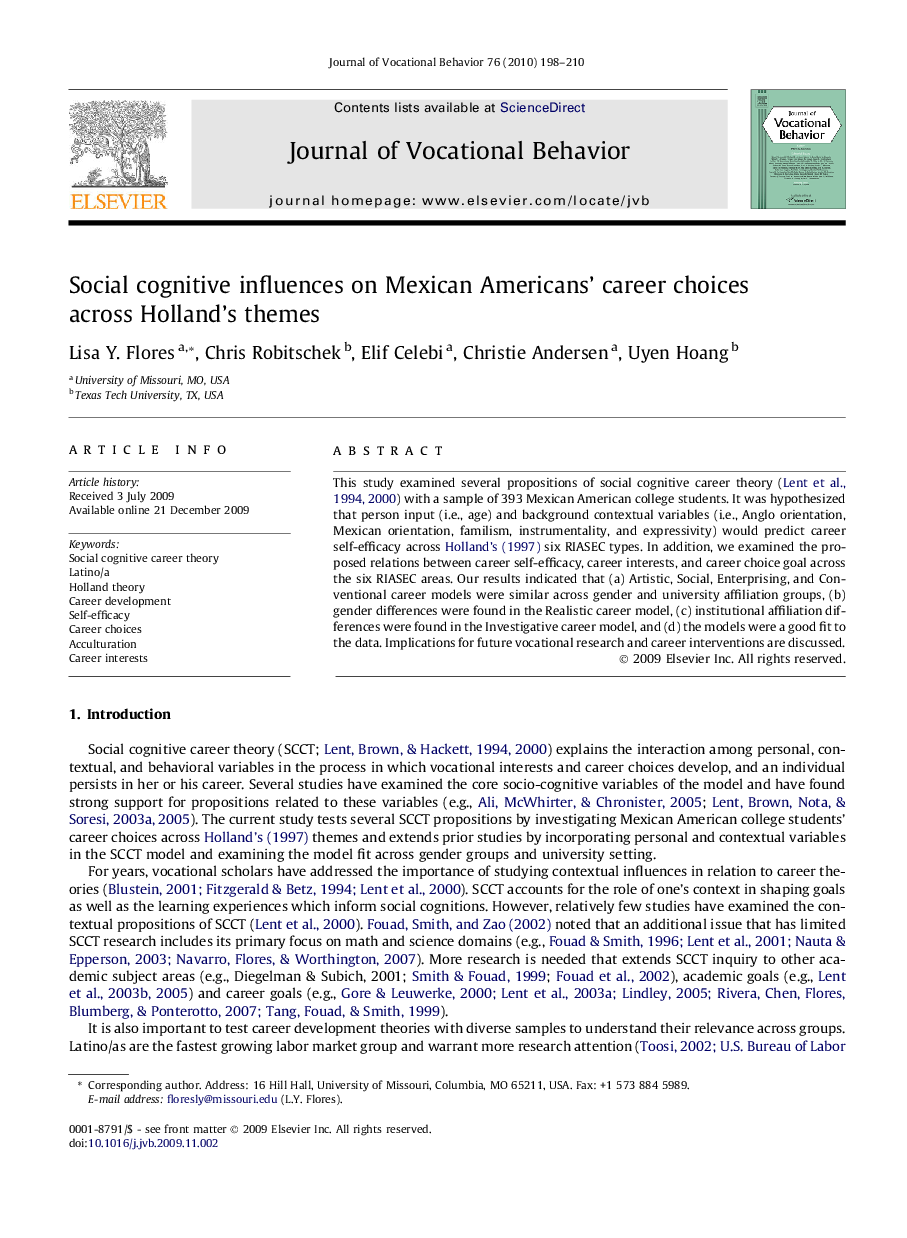| Article ID | Journal | Published Year | Pages | File Type |
|---|---|---|---|---|
| 887420 | Journal of Vocational Behavior | 2010 | 13 Pages |
This study examined several propositions of social cognitive career theory (Lent et al., 1994 and Lent et al., 2000) with a sample of 393 Mexican American college students. It was hypothesized that person input (i.e., age) and background contextual variables (i.e., Anglo orientation, Mexican orientation, familism, instrumentality, and expressivity) would predict career self-efficacy across Holland’s (1997) six RIASEC types. In addition, we examined the proposed relations between career self-efficacy, career interests, and career choice goal across the six RIASEC areas. Our results indicated that (a) Artistic, Social, Enterprising, and Conventional career models were similar across gender and university affiliation groups, (b) gender differences were found in the Realistic career model, (c) institutional affiliation differences were found in the Investigative career model, and (d) the models were a good fit to the data. Implications for future vocational research and career interventions are discussed.
